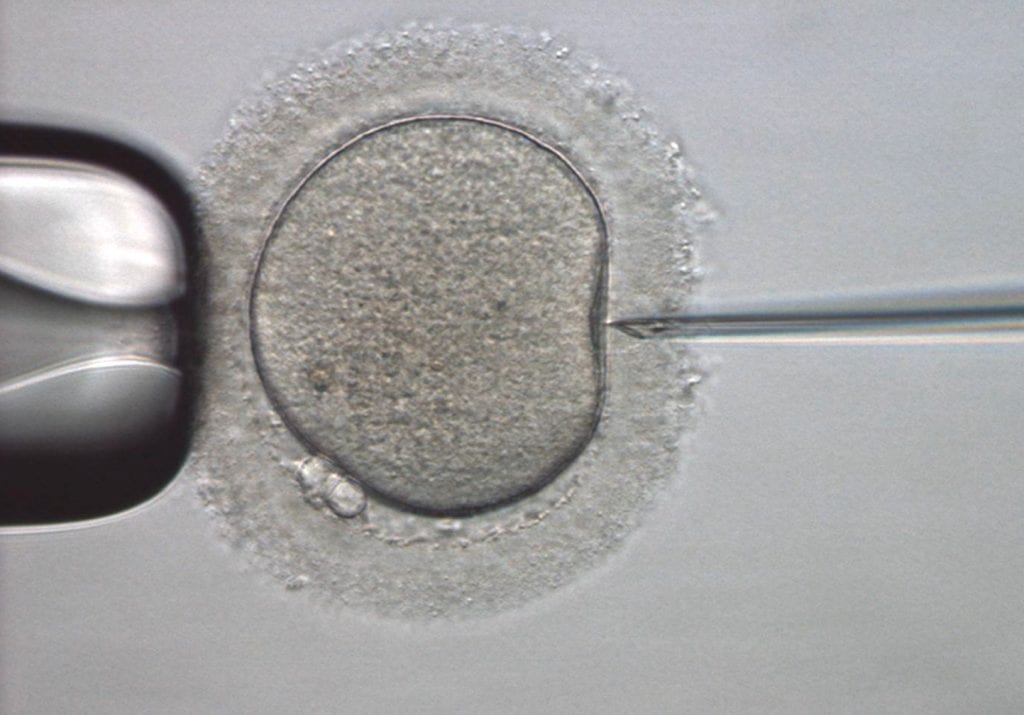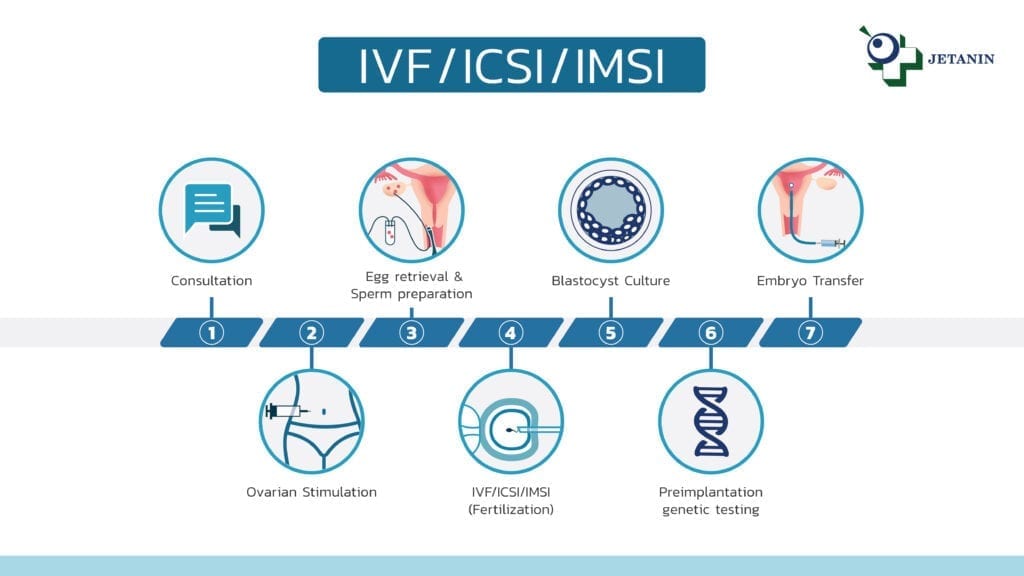IVF/ICSI
IVF/ICSI, is a method of fertilization that takes place outside the body and in a laboratory dish
Jetanin Hospital
IVF/ICSI, is a method of fertilization that takes place outside the body and in a laboratory dish.

The key difference between IVF and ICSI is how the sperm fertilizes the egg. In IVF, the egg and sperm (of which there are many) are left in a laboratory dish to fertilize on their own. In ICSI, the selected sperm is directly injected into the egg.
ICSI yields satisfactory fertilization results and helps reduce problems with abnormal fertilization caused by eggs and sperm – such as fertilization by multiple sperm and the inability of the sperm to penetrate the eggs (ZP) and fertilize, etc.
For those with significant sperm problems, such as with high sperm DNA fragmentation, with a history of previous fertilization failure or with poor embryo quality, then IMSI (Intracytoplasmic Morphologically Selected Sperm Injection) may be advised by the physician.
IMSI is a technique using a high-powered microscope to select sperm with the best morphology and the lowest amount of fragmentation to fertilize with eggs.
After the female partner has received ovarian stimulation about 9-14 days to acquire multiple good quality eggs, doctors will collect eggs. The eggs will be transferred to a culture media and kept in an incubator that controls temperature, humidity and the amounts of various gases ideal for egg growth for a period of time. After allowing the eggs to mature for the right amount of time, the embryologist will mix the mature eggs with healthy sperm which has been specially prepared and selected. Fertilization will be checked 16-18 hours later
